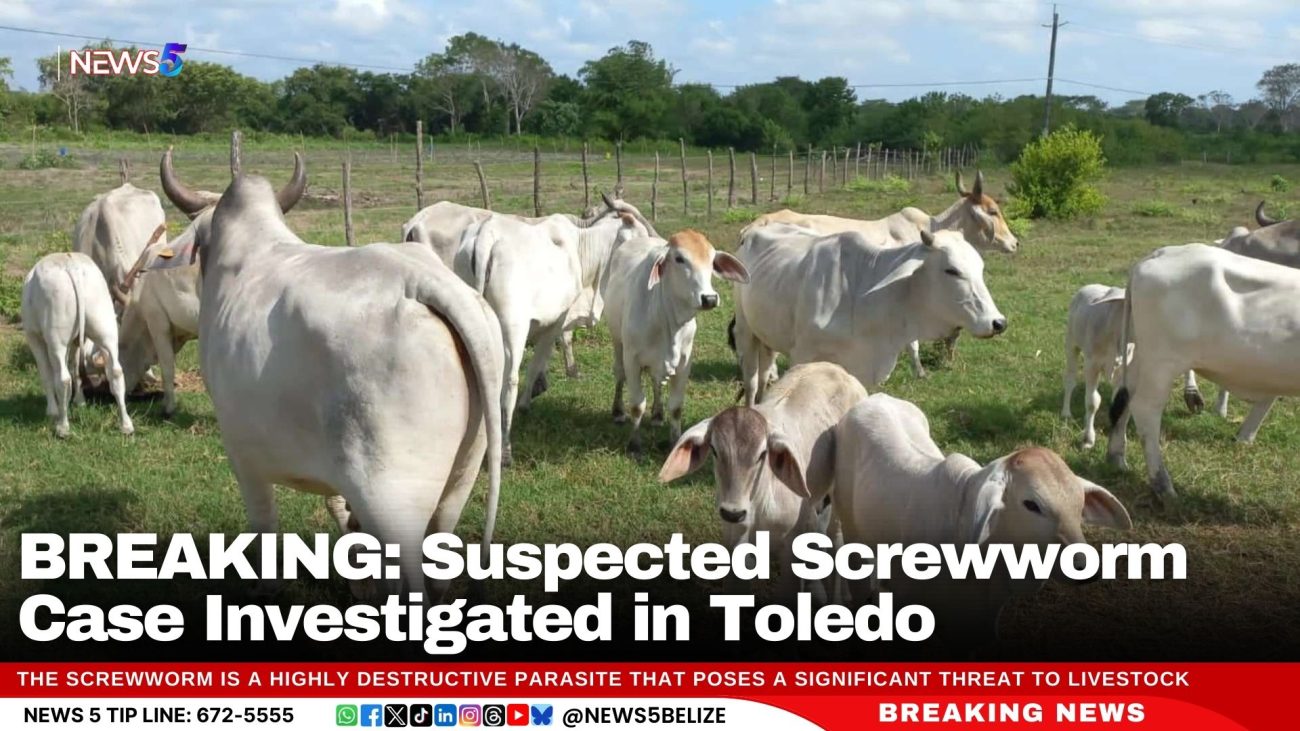BREAKING: Suspected Screwworm Case Investigated in Toledo
Authorities are investigating a suspected case of New World Screwworm (Cochliomyia hominivorax) in the southwestern Toledo District. The Belize Agricultural Health Authority (BAHA) and the Ministry of Agriculture, Food Security, and Enterprise (MAFSE) issued a statement confirming that technical teams have been dispatched to the area to conduct a thorough assessment.
The screwworm is a highly destructive parasite that poses a significant threat to livestock and other animals. BAHA and MAFSE have urged livestock owners, transporters, and the public to remain vigilant. Preventative measures include regular inspection of animals for signs of myiasis (wound infestations by larvae), immediate reporting of suspected cases to BAHA or healthcare providers, and ensuring that livestock have NWS Health Inspection Certificates and Movement Permits before transportation. Additionally, animal movements should occur only during daylight hours, and all animals, including pets, must be declared at designated Animal Movement Control Points.
Illegal movement of animals continues to be a major factor in the spread of screwworm across Central America. BAHA has emphasised the importance of adhering to strict regulations outlined in the New World Screwworm Prevention, Control, and Eradication Regulations under Statutory Instrument 143 of 2024. Violators face penalties of up to $5,000 in fines, imprisonment for up to three years, or both.
Residents are encouraged to report cases of suspected screwworm infestations to BAHA’s Animal Health Department. Contact numbers include 824-4872 for Central Farm, 302-1388 for Orange Walk, or via WhatsApp at 670-7003. Additional information can also be obtained by emailing animalhealth@baha.org.bz.
“This highly prolific parasite continues to spread across Central America due to the illegal movement of animals,” the BAHA statement read. The agency is calling for strict adherence to preventative measures and swift action in reporting potential cases to protect Belize’s livestock industry.







Facebook Comments